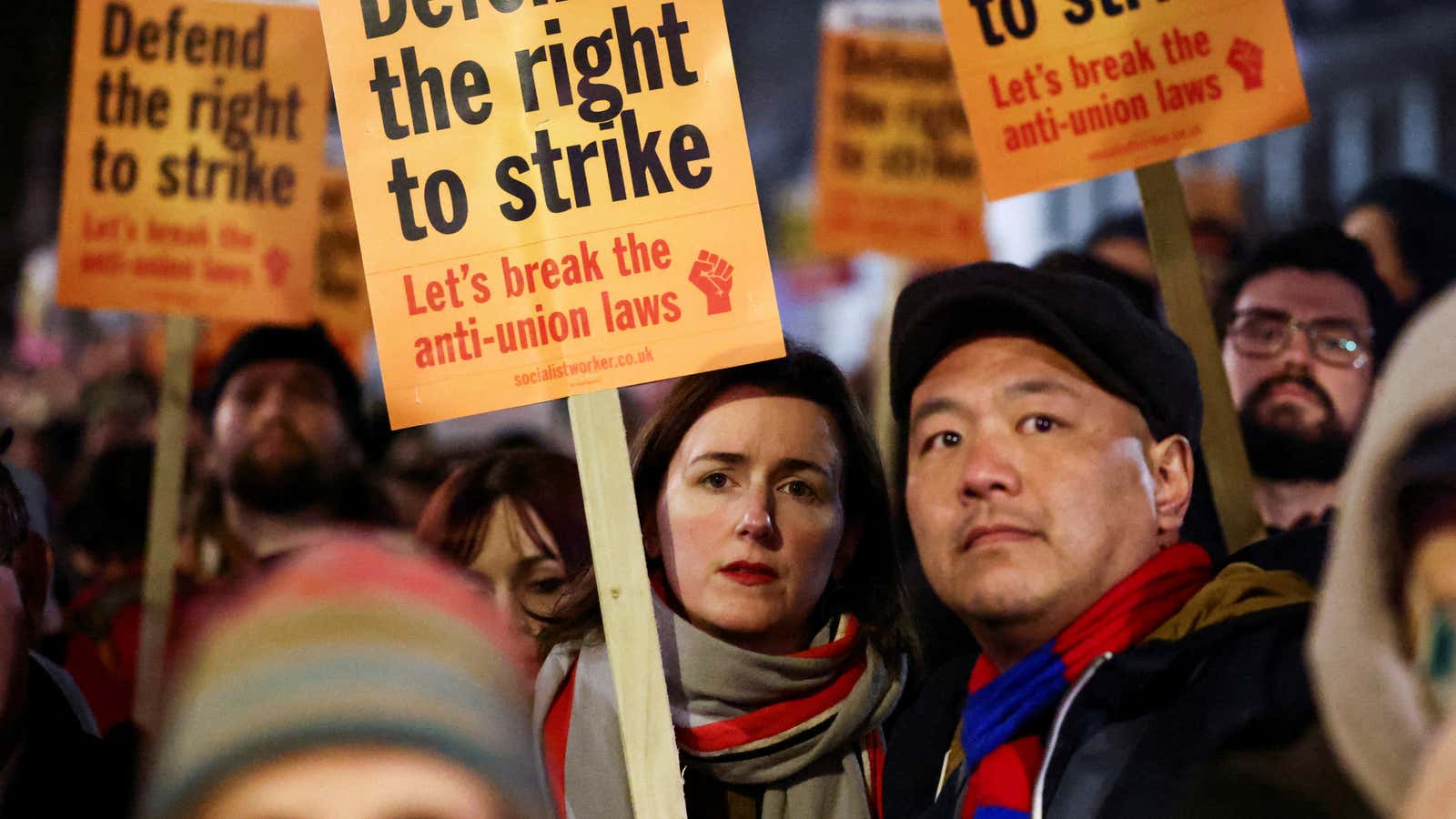Workers from across the UK’s public sector will walk out en masse on Feb. 1.
They plan to protest a controversial new labor law — passed by the House of Commons on Jan. 31 — that prohibits some emergency workers and rail employees from participating in strikes.
It will be the latest in a series of walk-outs that have rocked the UK in recent months, including large-scale actions by nurses, teachers, and postal workers in response to stagnant wages.
Critics say the new law allows the government to exert excessive power over employees, while its proponents argue it’s essential for public safety. While the bill must still pass the House of Lords, the chamber’s role is largely ceremonial.
In tandem with the strike, the Trade Union Congress (TUC) — England’s association of organized labor — has planned mass demonstrations in major cities across the country against the new policy, as well as the government’s refusal to negotiate new pay raises for public employees.
Inflation leads to higher wages, which leads to...inflation?
Despite ongoing pressure from workers over pay, prime minister Rishi Sunak has said his government will not consider increasing wages. He warned of what he called a “wage-price spiral,” where consumer prices rise in response to higher wages, creating further inflation.
According to government figures released in January, wages in the UK grew at the highest rate in more than 20 years. But they still failed to keep up with rising inflation.
Paul Nowak, the head of the TUC, blamed the government’s rigid negotiating stance for the looming protests.
“[Chancellor of the exchequer] Jeremy Hunt and Rishi Sunak are key to unlocking the current industrial disputes,” Nowak said, demanding a sitdown at 10 Downing Street to resolve the conflict.
Union membership is down in industrialized countries
The large-scale, ongoing strikes come somewhat as a surprise. In the past two decades, union membership in the high-income nations that make up the Organisation for Economic Co-operation and Development (OECD) has declined significantly.
Busy week of protests
Despite lagging union membership, the strike planned for Feb. 1 will be the 13th strike in just the last week, a sign of both the enduring power of unions in the UK and the escalating tensions between public workers and the UK government. Here’s what the last week looked like:
Jan. 23: Ambulance workers in the West Midlands strike over pay.
Jan. 24: Ambulance workers in northwest England strike over pay.
Jan. 25: Bus drivers strike in London over pay and union contracts. Teachers in Scotland continue striking in various parts of the country.
Jan. 26: More than 4,200 physiotherapists in the National Health Service strike over pay. Teachers in Scotland and bus drivers in London continue their strike. Ambulance workers in Northern Ireland go on strike.
Jan. 27: Teachers in Scotland continue their strike.
Jan. 28: Staff in 80 courts across England and Wales strike over wages.
Jan. 30: Teachers in Scotland continue to strike.
Related stories:
✊ The UK is expecting its largest wave of strikes in over 30 years
🚅 Unions reach a tentative deal, averting major rail strike
🇬🇧 Rishi Sunak set to become the UK’s first non-white prime minister—and its richest
